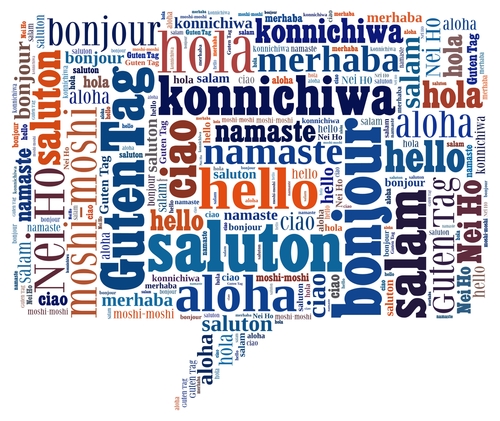
The Missionary Training Center’s foundational training coupled with a year or more of immersion in the field equips Mormon missionaries with impressive language skills.
NPR had a great piece over the weekend on Mormon missionaries’ remarkable foreign language skills.
Calling the Missionary Training Center “one of the best language-instruction institutes in the world,” the story focuses on the innovative “context-based” training techniques that are used at the MTC for rapid assimilation of language — some of which are being adopted by the military.
The story may be optimistic in terms of the speed of new missionaries’ language acquisition:
In a matter of weeks, these enthusiastic young students will be speaking foreign languages fluently enough to spread the Gospel.
As some of the comments point out, a scenario of weeks is not typical. For most missionaries, the MTC provides a solid base to build from, but the real learning happens over the next year or more of immersion in the field:
. . . missionaries do not leave the MTC with a great deal of language skills, but they do have a great foundation to build on. I remember my first weeks in Finland. I understood nothing, and no one understood me. As time went on, and I worked hard, things gradually improved.
Although the article may be overly pollyannish, I think it points to a wonderful thing, which is the extraordinary emphasis Mormonism places on young people learning more about their world.
This week, one of my friends is heading to Russia to pick up one of her sons, who is finishing his mission; her second son is now serving in Ukraine. Another friend is about to send two of her triplets to different parts of France. An acquaintance has marveled to me that her twenty-something son, who served in the Marshall Islands, was for a time in charge of translating General Conference into Mashallese (a language her family didn’t even know existed until her son’s mission).
And in this emphasis on languages, Mormons in America are unusual. According to Gallup, only a quarter of Americans can speak a foreign language well enough to hold a basic conversation. Other, more recent, studies suggest it’s even worse than that. According to the Department of Education,
Just 18 percent of Americans report speaking a language other than English. That’s far short of Europe, where 53 percent of citizens speak more than one language.
And since those are both self-reported statistics, and people tend to aggrandize themselves when speaking to polltakers (saying they went to church this week when they didn’t, saying they gave more money to charity than they actually did, etc.), the reality is probably even worse.
We Mormons learn languages for the immediate goal of proselytizing the world. And that’s a wonderful thing, but to me it’s equally important that we’re teaching our young people they are citizens of a vast and complicated planet with hundreds of other cultures, other histories.
“If you talk to a man in a language he understands, that goes to his head. If you talk to him in his own language, that goes to his heart.”






